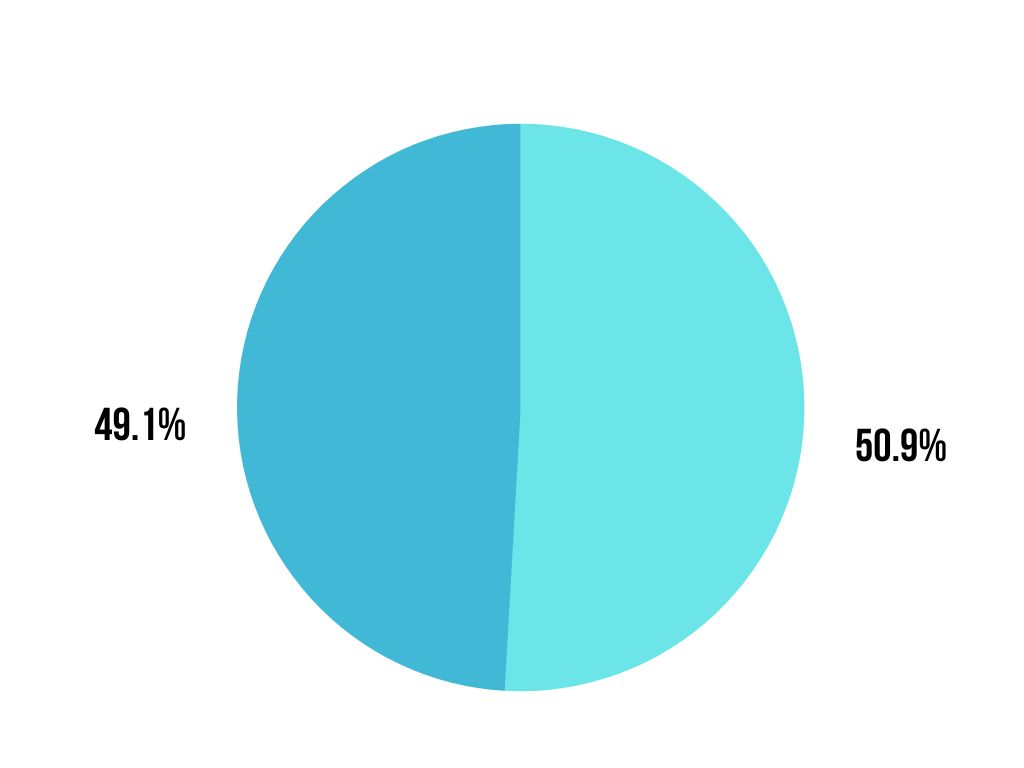On June 29, the U.S. Supreme Court ruled 6-2 in Students For Fair Admissions v. Harvard against affirmative action within the higher educational systems, stating that it violated the 14th Amendment’s Equal Protection Clause.
Affirmative Action has been a part of the college application process, and has shaped student diversity populations, since 1965. This new decision is sure to have a lasting impact on universities around the country, and will change the way students map out their futures.
“I want to stress that one thing that hasn’t changed is that every single student deserves the right to an education, and that every single student has it in them to go to the school of their dreams,” College and Career Center Counselor Cody Dailey said. “In light of this ruling, we want students to know that it is possible for them to go to college and pursue an education, [but] there are going to be ways in which the application process is different.”
Affirmative Action within college admissions is when various factors such as race, ethnic background, gender, and social class are taken into consideration when looking at a student’s application, Dailey said. Ultimately, affirmative action helped universities fulfill their institutional priorities. Institutional priorities can mean a variety of things depending on the school, but most commonly puts an emphasis on equity, inclusion, and diversifying the environment.
“[Affirmative Action] has given people more opportunities,” Dailey said. “When we think about our nation’s history of education in this country and the privilege that some of us have, affirmative action helped to level that playing field. It’s not just allowing people to apply, but also about making them feel like they can be a part of change in this country.”
With the new precedent, college applications are going to eliminate questions about race and background, and limit the ability to use demographic data within the evaluation process, Dailey said. However, there are some considerations that the Supreme Court did not discuss, such as college based scholarship programs for multicultural backgrounds and whether or not those are allowed. A gray area has emerged with more questions on how to proceed.
“The essay portion is going to be really important,” Dailey said. “You should write your essay on a topic you really care about. At the end of the day, it’s about you. If a student’s identity has impacted them in some way, the essay is a great way to give context.”
While the Supreme Court decision has been known for just a few months now, many college admissions experts predicted the ruling and have had time to prepare, he said. They are continuing to find ways to meet institutional priorities and ensure all people have a seat at the table.
“All people benefited from affirmative action, because every student who is at a diverse university has a better learning experience by having a variety of voices and perspectives in those places,” Jennifer Rowe, Director of Equity and Belonging, said. “For all young people, really reflect on what you value in terms of having that experience of diversity, and find schools that value and speak to that. To all students, never be discouraged. One’s race doesn’t define your skills set, pathway, and life trajectory.”
As LT students graduate and pursue higher education or the workforce, it is important to remember the power of using their voices, Rowe said. Universities want students to bring their experiences to campus, and many of them encourage students to be an advocate for change.
“We must remember not to move backward, always move forward,” Rowe said. “We must move forward and make our world more open, more inclusive, more accepting, more caring, and not retreat into fear of thinking we are losing something or not receiving something. We have to find it in ourselves to leave the past in the past, and work hard to walk onward and bring others along with us into a more caring world.”
Vice President of Latinos Juntos, Lilliana Medley ‘24, was very frustrated by the Affirmative Action ruling and what it meant for her and her peers applying for college.
“I knew it was taking away privileges of minority students, and I got worried because I come from a minority background and I wasn’t sure if it was ruining my chances of getting into colleges,” Medley said. “Now that I know more about it, I still feel like it’s unfair to many students. It is concerning and frustrating that the empowerment that comes from pursuing a higher education can be taken away from some people.”
A diverse and inclusive student body is a priority for Medley, and has shaped the schools on her list. She wants to continue to be passionate about her culture and join culture clubs like Latino Juntos at her university.
“It’s very hard to be motivated when comparing yourself to the people around you, but for me I like to remember that this up and coming process is exciting too,” Medley said. “My future is important to me, and as I look at all of these colleges, campuses, and programs, I remember all that I have to look forward to.”



















![Movie poster for '[Rec]" (2007).](https://www.lionnewspaper.com/wp-content/uploads/2023/04/rec-640x900.jpg)



